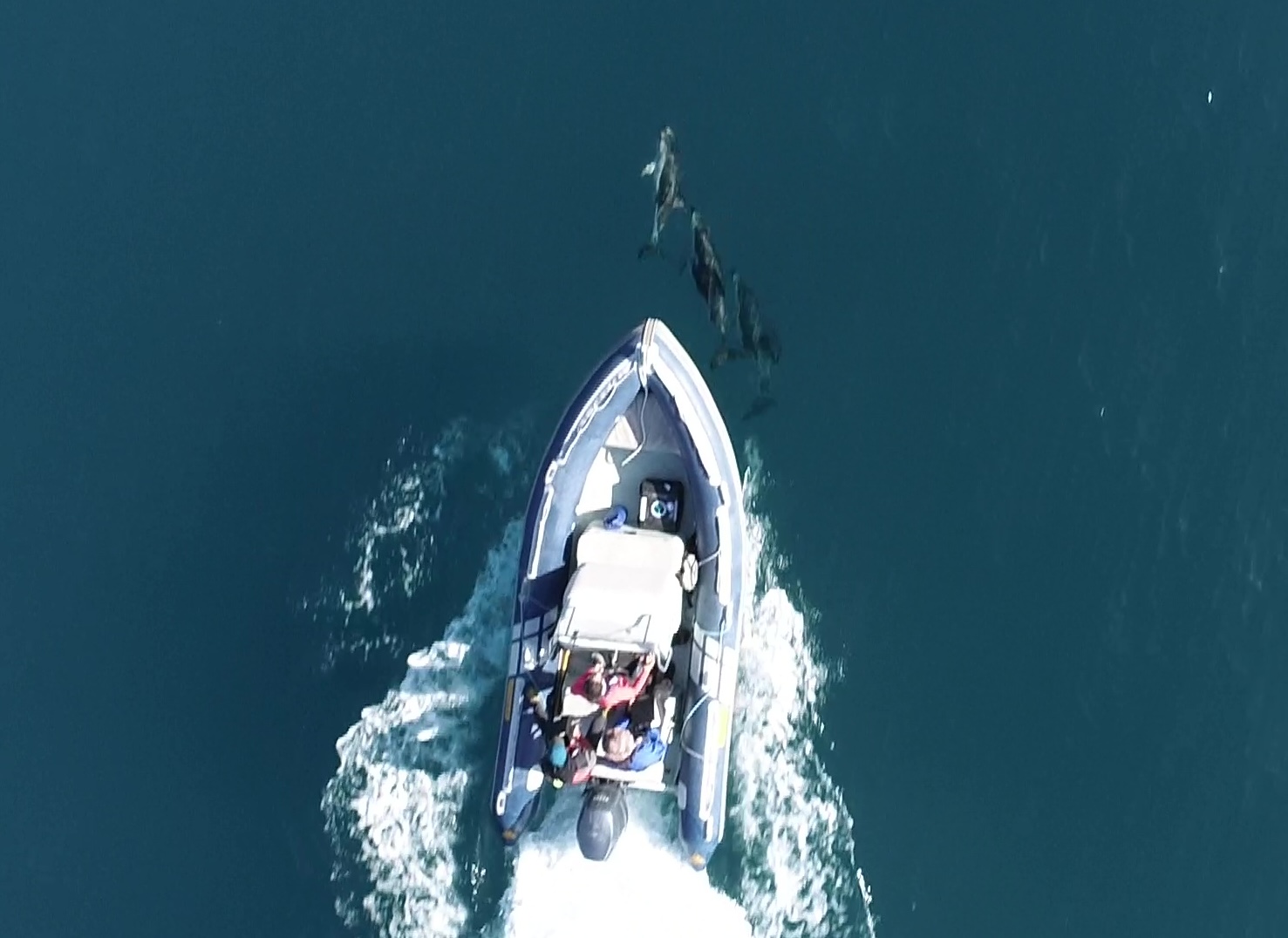Just as humans might ride a wave hoping to catch a sweet surf, dolphins may also ride a ship’s wake, a behavior coined as “bow-riding”. Simply put, it’s fun.
At least, that’s been a decades-long theory to explain why cetaceans like dolphins and porpoises bob, swim, and seemingly play when in the presence of a ship’s wake.
Why do people surf? Because it’s fun. They also are getting energy while they’re actually on the board.
Dr Dara Orbach
However, new research suggests another theory for this behavior: dolphins save energy by surfing ship waves that would otherwise be spent swimming. Commuting at its finest.
“If you think about someone surfing, for example, why do people surf? Because it’s fun. They also are getting energy while they’re actually on the board. Just because they’re getting a transportation benefit doesn’t exclude that there’s another purpose there as well,” study coauthor Dr Dara Orbach, Assistant Professor of Biology at Texas A&M University-Corpus Christi, told IFLScience.
As Orbach notes, play and energy efficiency aren’t necessarily mutually exclusive. In other words, riding wake may be efficient and fun for the dolphins.
To come to their conclusions, researchers surveyed dusky dolphins (Lagenorhynchus obscurus) off the coast of New Zealand using a drone to opportunistically collect footage as the cetaceans traveled between their offshore foraging grounds and their home coastal waters.
“This was not easy to do. These animals are very fast, and we needed to fly at a lower altitude looking straight down, meaning our field of view as drone pilots is quite limited,” drone pilot and study coauthor Dr Lorenzo Fiori, also from Texas A&M University-Corpus Christi, told IFLScience. “It’s almost like you are a bird of prey.”
Once the team started recording the dolphins, they would follow an individual as it swam at a consistent speed and in a straight line. The researchers reviewed the footage at a low speed, counting each time the blowhole opened and closed to indicate the animal’s respiration rate.
“These animals move really fast, and the opening and closing of the blowhole is less than a second at its longest,” said Fiori.
As dolphins increase their speed or energetic expenditure, they take more breaths, increasing their respiration rate. Often, while bow-riding, though, their respiration rate would decrease, indicating that they may very well be using the ships as a mode of transportation.
Orbach said why dolphins ride bow waves is a long-standing question that hasn’t been well-studied.

Dolphins bow-riding the research boat.
Image courtesy of Lorenzo Fiori
Depending on their height, weight, or how they move in the water, vessels create different wakes or waves, meaning that dolphins will interact with these ships differently. Understanding this behavior not only helps to lend a greater understanding of their ecosystems but also helps humans set regulations and safety requirements.
“Dolphins are really important bioindicators of their environment, so they’re important for telling us more about the health of an ecosystem, and, in general, they have an intrinsic value in terms of their role in the food chain,” said Orbach.
“If you move at a certain speed, dolphins are less likely to bow ride, which means perhaps a boat should slow down in those areas or could speed up in areas where dolphins aren’t interested in bow-riding.”
And just like humans, certain behaviors can be explained in various ways. As for the dolphins, bow-riding appears to be both efficient and fun.
The study is published in the journal Scientific Reports.
Source Link: We May Finally Have Discovered Why Dolphins Love Riding Bow Waves